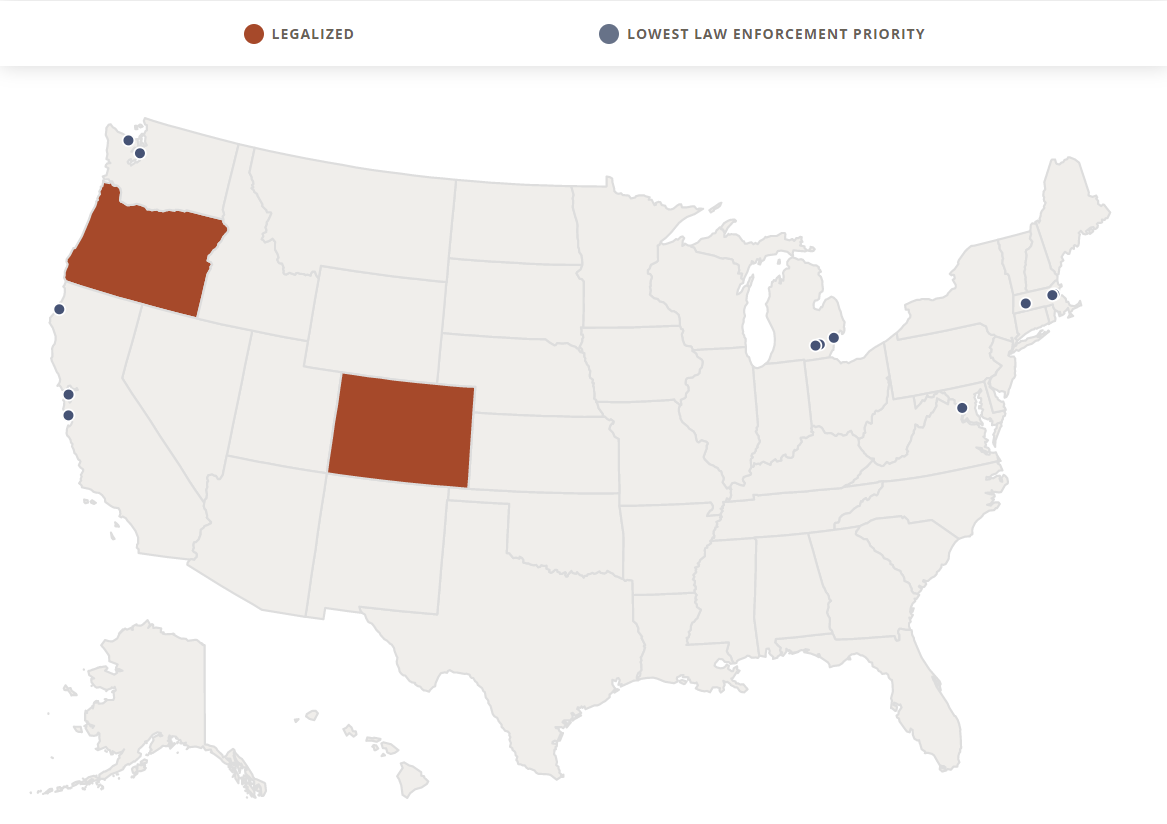In late January, the Oregon state legislature filed a pre-session, psilocybin social equity bill to supplement the state’s groundbreaking Measure 109 program. That legislation is new Senate Bill 1580, sponsored by ten Democratic state lawmakers. Its first public hearing was yesterday and it goes to Senate work session tomorrow.
Oregon’s New Legal Psilocybin Program
This bill comes at a critical time, as Oregon’s new legal psilocybin program serves to transition psilocybin from an illegal substance into a regulated industry within the state. It also fills a gap that many saw in Measure 109, which, like Measure 91 on cannabis before it, fails to address social equity in any respect.
SB 1580 would establish a “Task Force on Psilocybin Health Equity” of fifteen members, comprising lawmakers, regulators, and others with significant experience with psychedelics treatment to study issues related to equity and accessibility of psilocybin services. The state Senate would elect one member of the task force, the House of Representatives would elect another, and the Governor would appoint the remaining thirteen members, stratified to represent various parties of state psilocybin regulators.
View the US Map of Psilocybin Legality by State
Duties of the Task Force
The specific duties of the task force would include researching and making findings regarding barriers that people of color and low-income people face regarding: 1) establishing psilocybin-related businesses, 2) retaining culturally specific psilocybin service facilitators, 3) entering a licensure training program, and 4) accessing psilocybin services.
Further Responsibilities
Further responsibilities would include: 1) studying and making findings regarding the development of psilocybin research licenses, 2) regulation of research partnerships exploring the efficacy of psilocybin therapy and expanding access to psilocybin services, and 3) identifying possible legislation and funding sources to establish a psilocybin equity program.
The study would provide data to inform decisions by lawmakers and regulators regarding fee agreements and grants for financial and technical assistance for psilocybin businesses owned by disadvantaged individuals. It further proposes “that psilocybin service centers dedicate a minimum percentage of psilocybin treatment sessions to clients who are low-income.” A final report would be due by November 1, 2022 and the task force would be disbanded on January 2, 2023.
While the task force would not be permanent, SB 1580 could pave the way for a permanent psilocybin equity office in the state. Whether the bill can actually pass in this accelerated, five-week legislative session is an open question. From its current stop in the Senate Committee on Human Services, Mental Health and Recovery, its subsequent referral is the Joint Committee on Ways and Means. We’ve explained elsewhere that “Ways and Means is where a proposed law’s fiscal impact is studied, in conjunction with the statewide budget. It’s often a graveyard, especially in short sessions.” Let’s hope that’s not the case with SB 1580.
Anyone wishing to follow the progress of this bill over the next month or so can do so here. We will be sure to update if this bill passes.


























